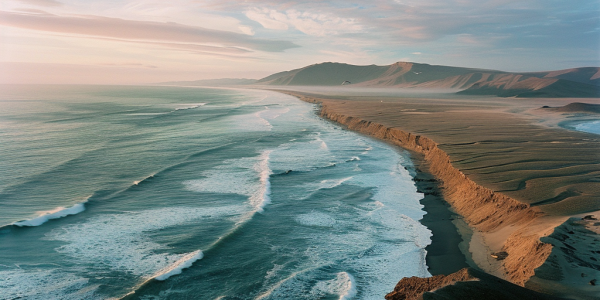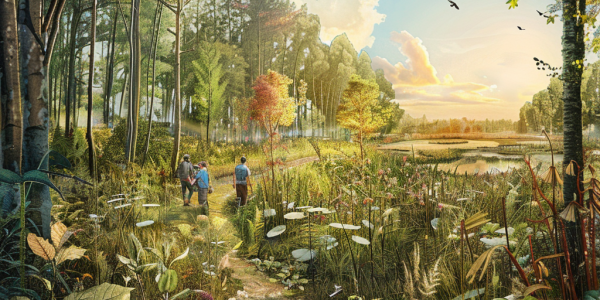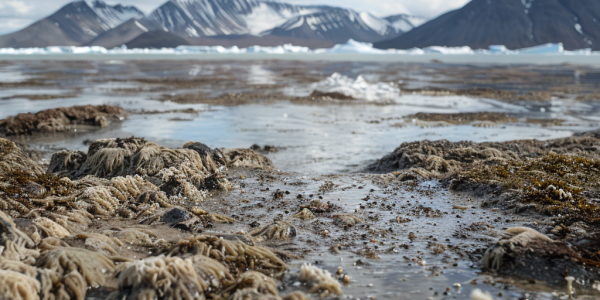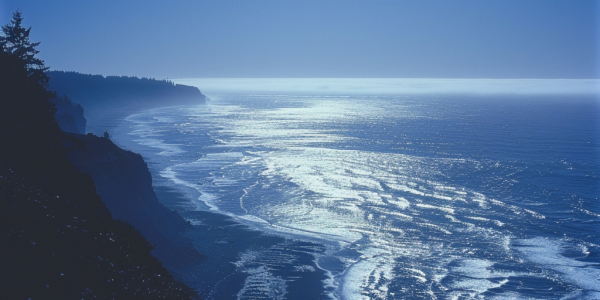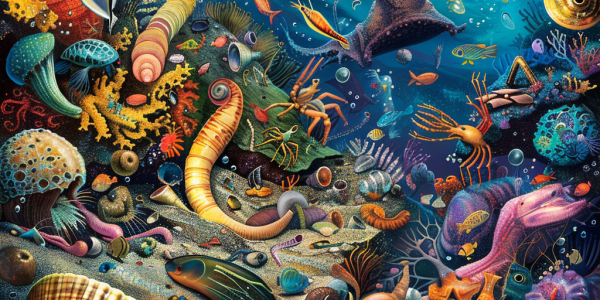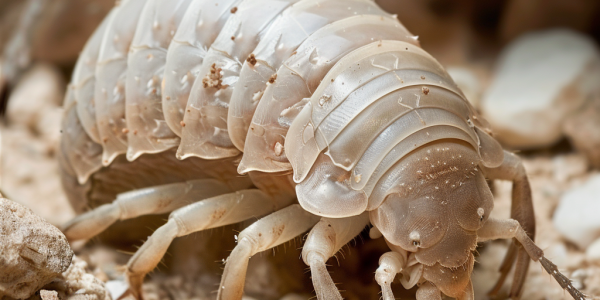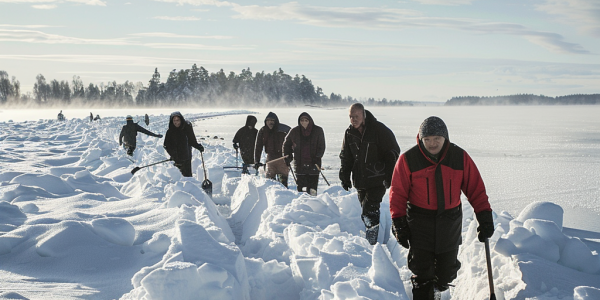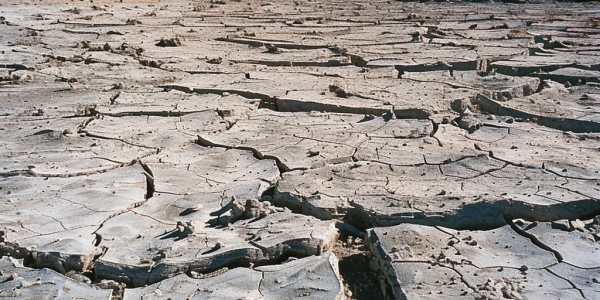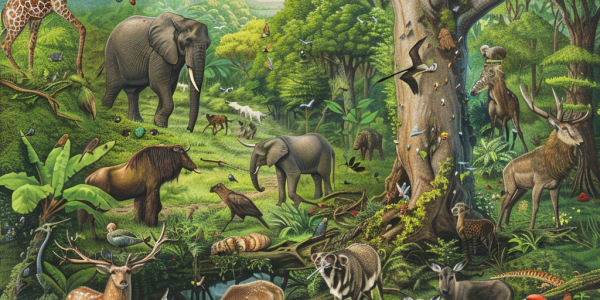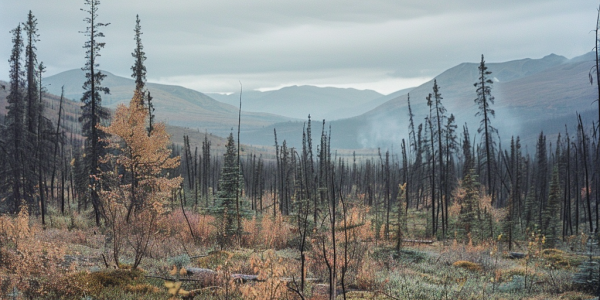Collaborative Oceanographic Research Key to Understanding Climate Change
In the next two decades, physical oceanography will focus on the ocean’s critical role in climate dynamics, emphasizing collaboration between oceanographers and meteorologists. This research is vital for understanding ocean-atmosphere interactions and developing advanced climate models to address the challenges of climate change.
Scientists Propose New Conservation Strategy to Combat Biodiversity Loss Amid Climate Change
International scientists warn of biodiversity loss due to climate change and propose a new conservation strategy focusing on climate change-refugia. Their research emphasizes identifying and protecting resilient ecosystems to mitigate species extinction and adapt to environmental changes. This innovative framework aims to enhance conservation efforts and safeguard both wildlife and human livelihoods.
Microscopic Fungi Enhance Soil Carbon Storage in Newly Formed Arctic Landscapes, Study Finds
Recent study by researchers at Queen Mary University of London reveals how microscopic fungi enhance soil carbon storage in newly formed landscapes resulting from the shrinking of Arctic glaciers. The colonization of microorganisms in exposed areas plays a crucial role in soil formation, offering significant carbon stores under specific conditions. Dr. James Bradley’s team’s findings, published in Proceedings of the National Academy of Sciences, shed light on the complex processes involved in post-glacial soil formation in Arctic regions.
Climate Change Impact on Pacific Northwest Oceanic Environment
A recent report from Oregon State University highlights the concerning trend of decreasing oxygen levels in the waters off Washington, Oregon, and Northern California, impacting marine life. Jack Barth, a professor of oceanography at OSU, discusses regional variations in oxygen levels along the coast, attributing differences to oceanographic processes. Climate change plays a significant role in driving these low oxygen conditions, with implications for bottom-dwelling species like rockfish. Continued monitoring and research are necessary to address the consequences of declining oxygen levels in the Pacific Northwest ocean.
AI Mapping Reveals Seafloor Invertebrate Activities Worldwide
Scientists from the U.S. and the U.K. have used AI to map seafloor invertebrate activities, shedding light on the importance of marine sediments in global ecosystems. The study, led by Texas A&M University, University of Southampton, and Yale University, provides valuable insights into ocean health and climate change responses.
Study Reveals Dietary Preferences of Desert Isopods
A recent study by researchers at the Hebrew University reveals the dietary habits of isopods, challenging assumptions and highlighting their impact on ecosystems. Isopods, often mistaken for bugs, play a significant role in desert environments, preferring macronutrient-poor soil crust over plant litter. This study sheds light on the complexity of isopods’ food selection and offers insights into broader ecological dynamics.
Volunteers Build Artificial Snowdrifts to Protect Endangered Seal Pups
Discover how volunteers in Finland are protecting endangered Saimaa ringed seals from the impacts of climate change by building artificial snowdrifts along Lake Saimaa. Led by hydrobiologist Jari Ilmonen, these dedicated individuals are creating essential shelters for seal pups in a changing environment. Learn how these innovative conservation efforts have helped the seal population rebound and provide hope for the future of this fragile ecosystem.
Microbial Life Discovered in Atacama Desert
Scientists have discovered a hidden underground habitat in the Chilean Atacama Desert, challenging previous beliefs about the region’s biodiversity. Through innovative DNA analysis techniques, researchers found microbial communities thriving in the hyperarid soils, shedding light on life’s resilience in extreme environments. This groundbreaking study, published in PNAS Nexus, has implications for astrobiology and expands our understanding of desert ecosystems.
Animals Play Crucial Role in Carbon Storage, Study Suggests
A new study suggests that animals play a crucial role in carbon storage, potentially enabling ecosystems to store two to three times more carbon. Matteo Rizzuto from Yale University highlights how animals contribute through activities like trampling, grazing, and bodily functions. This new perspective challenges previous assumptions about carbon dynamics, emphasizing the importance of preserving the relationships between species for conservation and climate change mitigation.
Wildfires in Arctic and Boreal Latitudes Impacting Ecosystems
Learn how wildfires are impacting photosynthesis rates in Canada and Alaska, leading to the transformation of boreal forests. Researchers at the University of California, Irvine are studying the effects of wildfires on black spruce forests and the rise of deciduous shrubs and trees in these regions. Find out how these changes could affect carbon dioxide removal and ecosystem functions in the Arctic and boreal latitudes.

